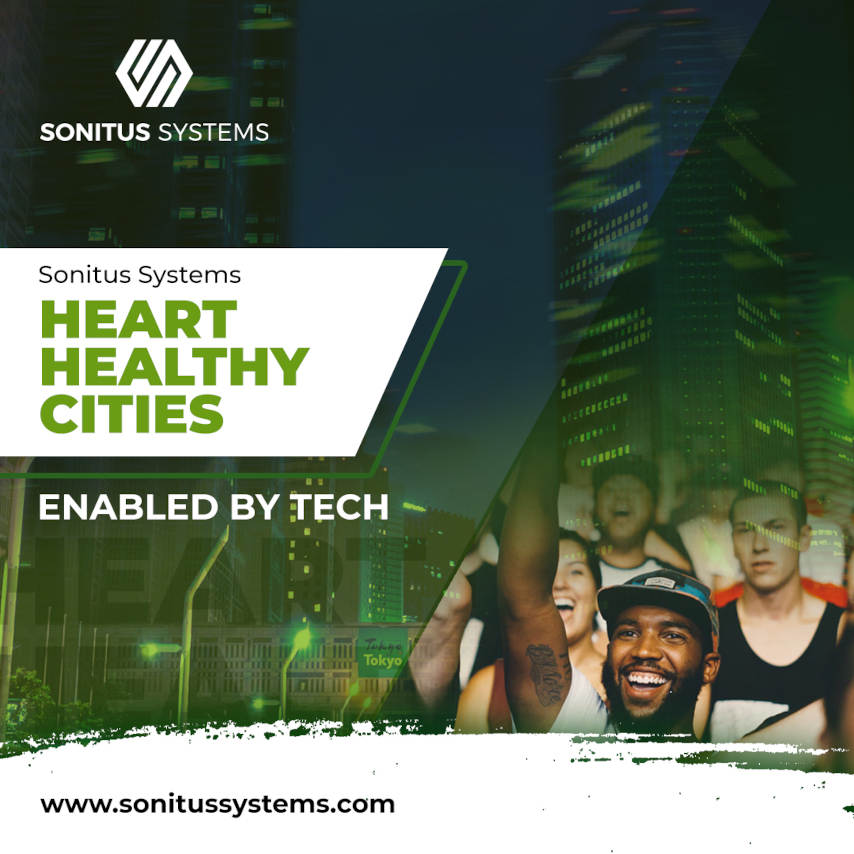The smart cities conversation has moved on. Leading city managers and local governments are now focusing on healthy cities, and heart healthy cities in particular, enabled by tech.
“Genetics loads the gun but the environment pulls the trigger”
The smart cities conversation has moved on. Leading city managers and local governments are now focusing on healthy cities, and heart healthy cities in particular, enabled by tech.
A recent publication in the European Heart Journal by Thomas Münzel, Mette Sørensen, Jos Lelieveld, Omar Hahad, Sadeer Al-Kindi, Mark Nieuwenhuijsen, Billie Giles-Corti, Andreas Daiber and Sanjay
Rajagopalan sums up the impact of poor air quality, noise and other environmental pollutants by stating “genetics loads the gun but the environment pulls the trigger”. The published research can be
accessed in full here: https://academic.oup.com/eurheartj/advance-article/doi/10.1093/eurheartj/ehab235/6273087
The report puts the increasing urbanisation of the planet in context by explaining that 75 percent of the world’s expected 10 billion population by 2050 will live in cities. In fact, two-thirds of
Europeans already live in urban areas and the World Health Organization, or WHO, now recognises the role urban planning must play in addressing adverse health outcomes for its people. The above
research focuses on non-communicable diseases – cardiovascular disease in particular – and the urbanization process in relation to environmental risk exposures including noise, air pollution,
temperature, and outdoor light. The report also explores the use of emerging technologies to assess external environmental exposures, which is something the team here at Sonitus Systems are passionate
about. Our mission is to make the information about environmental pollutants, including noise and local air quality, accessible to people in real time, enabling them to make informed decisions.
Significantly, the above report finds that the WHO Non-Communicable Diseases Global Action Plan and the report ‘Tackling NCDs “fail to adequately acknowledge the contribution of the environment to NCDs.
Furthermore, the United Nations sustainable development goals (SDGs) have not been sufficiently incorporated the importance of appropriate and healthy urban development in cities”.
Urbanization and air pollution
Air pollution has been identified as the leading environmental risk factor for global health and the fourth largest risk factor for global mortality. While the report in question focuses exclusively
on ambient or outdoor air pollution, it recognises that indoor air pollution represents an equally important risk factor. Air pollution in cities can be traced to a number of sources, with transport
and industry being the dominant offenders. Sonitus Systems, through a network of global distributors, works with a number of public and private sector clients to monitor emissions and unlock the data
required to tackle air quality challenges at a local and national level.
Urbanization and transportation noise
Increased urbanization and a massive rise in traffic have resulted in an increase in people exposed to high levels of transportation noise. According to the report “Exposure to transportation noise
may affect the risk for cardiometabolic disease through an indirect pathway, with cognitive and emotional perception of noise, followed by activation of the sympathetic-adrenal-medullary,
hypothalamic-pituitary-adrenal axes, and disturbance of sleep, resulting in an increased level of stress hormones, heart rate, and blood pressure”. While the dominant source of noise is road traffic,
trains, trams, and aircrafts also contribute to city noise. The above report references a recent noise mapping of the EU exercise, which estimated that at least 20 percent of people live in areas where
transportation noise levels exceed what is considered to be safe i.e. levels that exceed 55 decibels (Lden). Critically, the report points out the EU mapping does not comprehensively cover urban areas,
therefore it is likely that this 20 percent figure is an underestimation.
It is becoming increasingly clear that urban planning for the 21st century and beyond requires design interventions to ensure the health and wellbeing of residents and visitors. However, these
design interventions must be data-driven and for most cities, this requires a new approach. As an environmental data company, innovating hardware and software solutions to monitor, measure and report
on air quality and noise, Sonitus Systems is well placed to provide the necessary tools for both public and private sector organisations that are committed to tackling these issues.
Sonitus Systems offers both the hardware and software for a range of environmental parameters on a continual basis, with real-time information available through our Sonitus Cloud dashboard.
For more details on our indoor and outdoor noise and air quality monitoring products and services, please contact the team at www.sonitussystems.com/contact/contact.html
